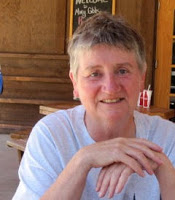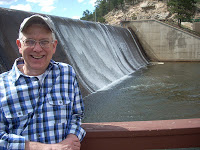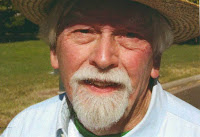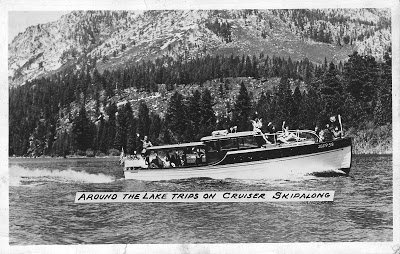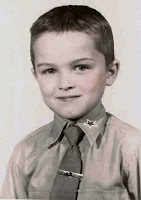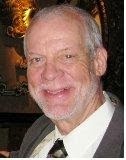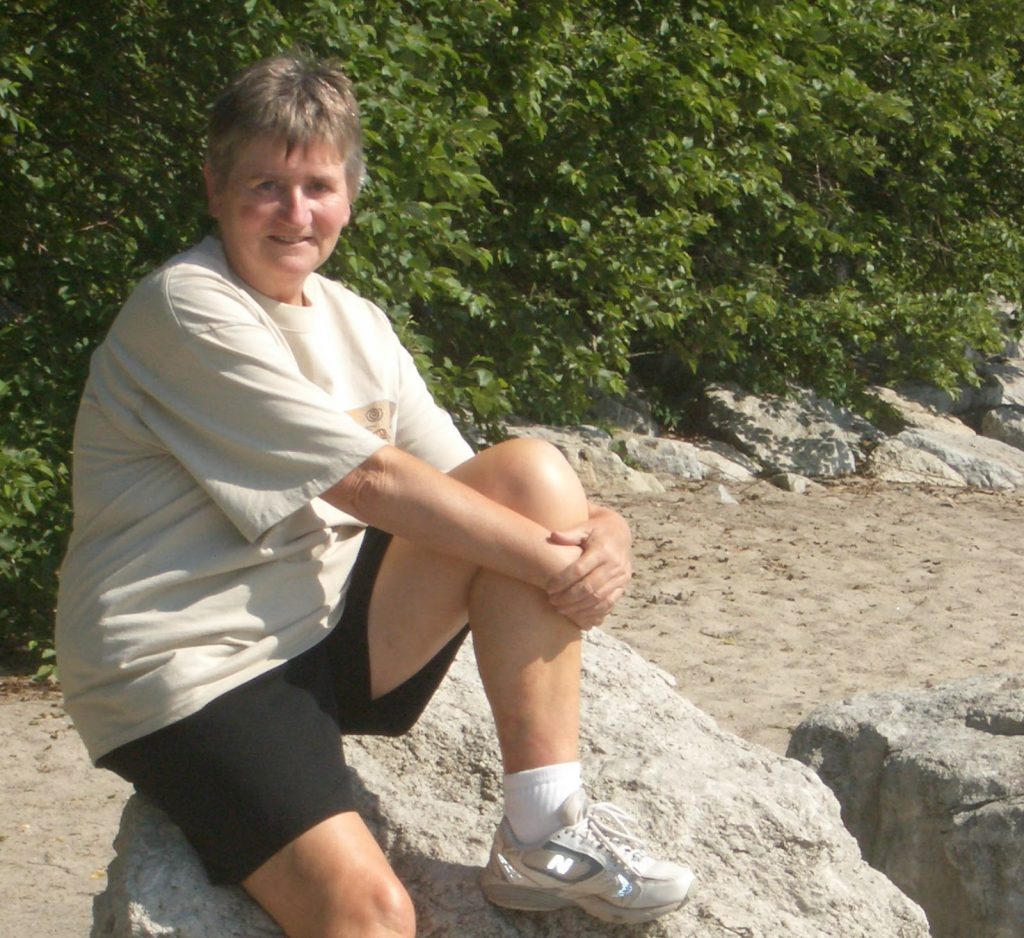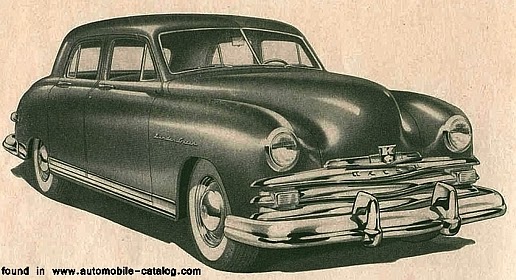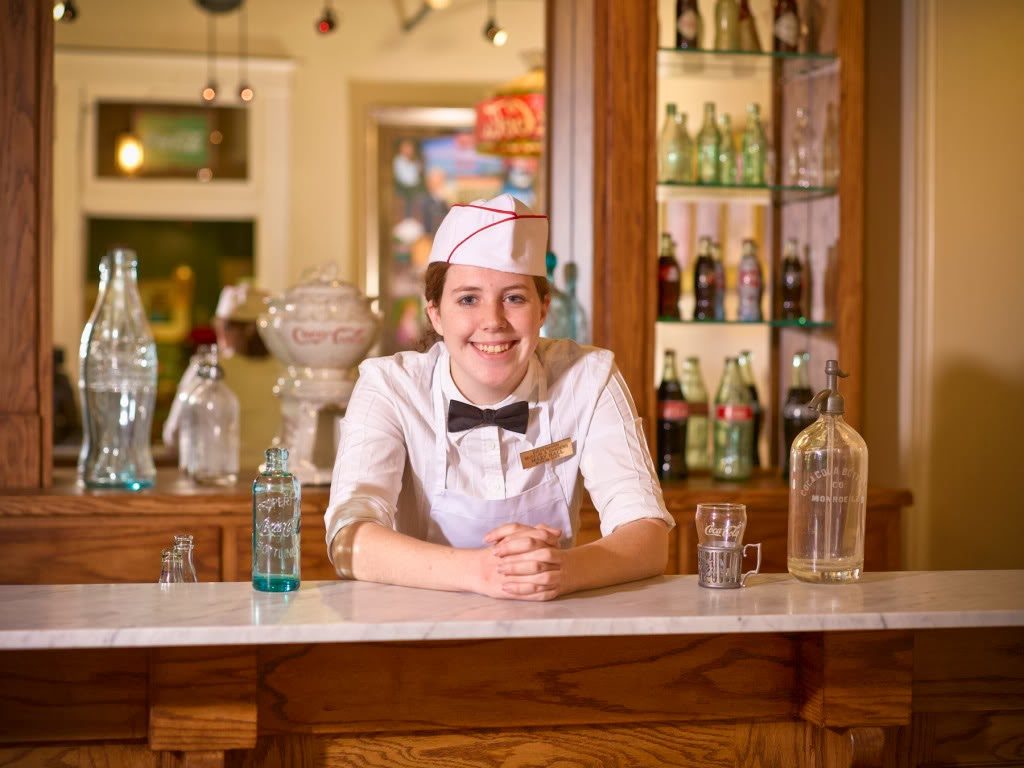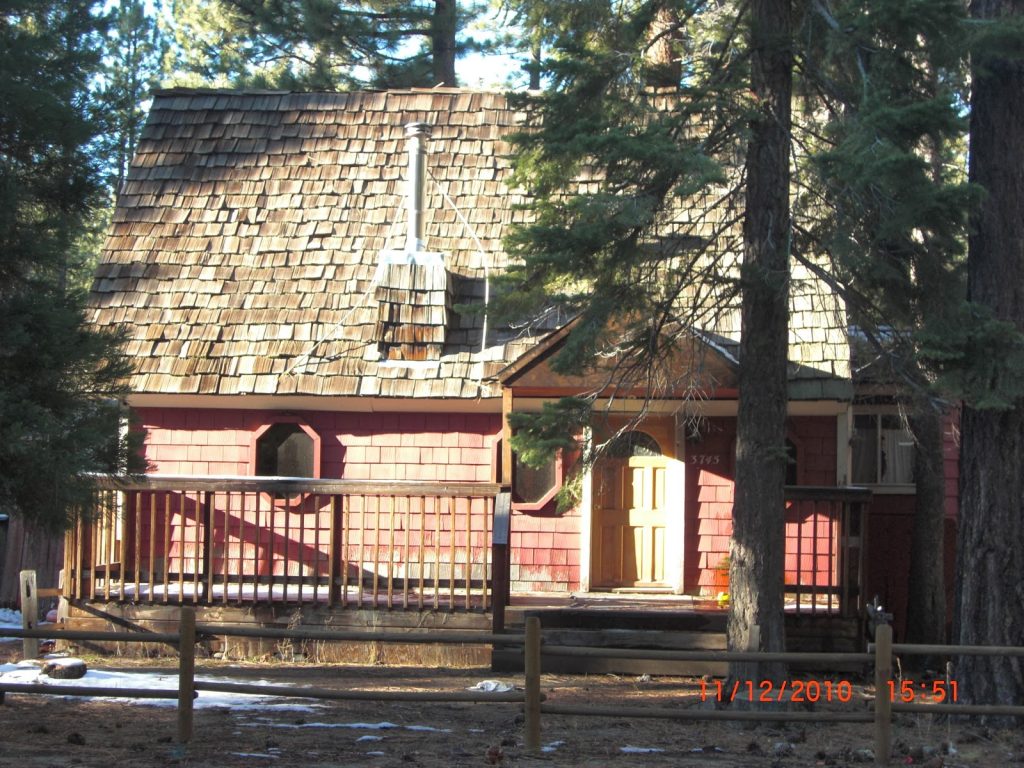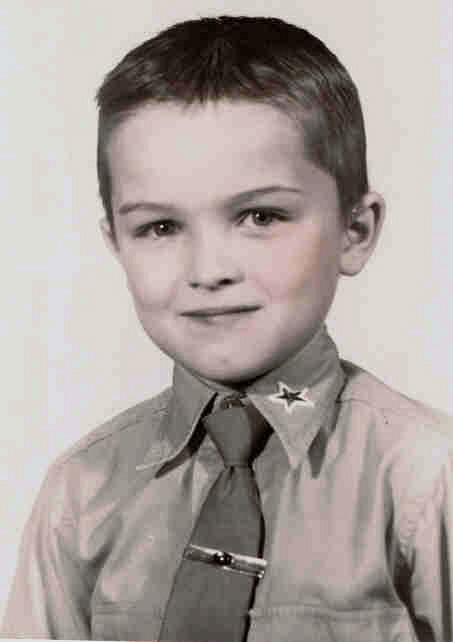Most of us are, of course, via nature
and nurture, to a lesser or greater degree a product of our parents. I can
easily identify many things; good, bad, and ugly, that I got from mine. On the
whole, though, I think what a received from my dad was of a simpler, less
complex nature, than the traits I received from Mom. My father was essentially an uncomplicated
man. My mother was not an uncomplicated woman, although she put on a good act.
Probably most people who knew her, especially the many children she taught and
their parents, found her to be a warm, patient, conscientious, motherly woman
with a good sense of humor. She was all those things; but a whole lot more that
she never presented to the world, or to me, though eventually I caught at least
an occasional glimpse of what went on below that smooth veneer.
So it’s little surprise that for the first
forty-odd years of my life I found it relatively easy to hide the real, gay,
me, from the world and to a huge extent from myself, and play a very convincing
part. I learned those skills from Mom. Not that my mother was a lesbian, at
least as far as I can ever know, though in fact how can I ever know? I
can’t, but I just
don’t sense it, and
I believe I would. Her issue was her son and daughter who both died before I
was born. She never once talked about it; not to me nor to anyone as far as I
know. She buried her tragedy deep and set about developing a shell, never to be
broken.
At least I eventually broke free of
mine. My mother never did. I learned the truth from my aunt. OK Mum, (which is
what I actually called her, not the more American Mom) you didn’t tell me your
secret and I didn’t tell you mine. Na na na na naaa na!
So I guess that leaves us even in our
dysfunction.
I always felt that there was
something. Something missing. I can’t really express what I felt, or why,
it was simply a child’s intuition. And now, after all these
years, I wonder if a mother’s intuition told Mum that there was
something, something indefinable, missing in me, in who I was, and in my
communication with her.
Somehow, despite our chaotic psyches,
Mum and I were close and I always knew I was loved unconditionally, by both her
and my dad. They both also had a great sense of humor. Mum loved to giggle. I
loved to make her giggle. It was all part of the very complex hidden
relationship in which I knew it was up to me to heal her wounds, though I only
knew of them subliminally, and make her happy. It was up to me to make her
laugh. So in this way she helped me develop my own humor and we laughed a lot
together. My dad’s humor was completely different from
Mum’s, and I am
fortunate enough to have a wonderful mixture of both, but he would look on
fondly in puzzled silence while Mum and I giggled helplessly over something in
which he could find little humor.
Mum was, as were many people but
especially women, I think, back then, very concerned with appearances. I don’t know if any
of you ever watched Keeping Up Appearances on PBS, but the show always
reminds me of my mother, although she was a much nicer person that
Hyacinth Bucket! Mum had a bad case of don’t do it in the
street and scare the horses. I could wear that tattered old sweater I
loved so much in the house, but I couldn’t venture outside in it, and if there
was a knock on the door, I had to bolt upstairs and hide or change clothes
before I came back down. My dad didn’t have to wear his tie in the house
but had to put it on in a rush if anyone came to visit, and he had to wear it
outside even if he was gardening. Someone might see him without it! I,
on the other hand, don’t give a tinker’s curse about
what anyone thinks of the way I dress, or come to that the way I live, or
anything about me. That, I think, is greatly a generational thing, but in my
bones I feel that a lot of it is purely a reaction to Mum’s obsession
with what will people think? On the other hand, of course, it did take
me the first half of my life to come out of that bloody closet, so I cannot
have been as freewheeling as I’d like to believe.
My mother’s other
obsession was with her weight. She did seem to gain weight easily, though she
never ate very much and only drank once a year, on Christmas Eve. It was always
some kind of home-made wine: pretty strong stuff. After a couple of glasses she
was bright red in the face and invariably stated in rather slurred words, how
strange it was that although she only drank once a year, it never had any
effect on her! Oh Mum, ever in denial! She was never obese, just pleasingly
plump in a motherly kind of way.
But my dad and I could never convince
her of that. These days I think it’s much easier to get a good feel for
just how overweight, fat, or obese, you are, and how you look. With endless
photographs of ourselves easily available we can compare ourselves with others
only too often. In the days of only occasional snapshots, my mother constantly
needed assurance.
“Oh dear!”
Mum would
exclaim, eyeing a woman of roughly her age bulging out of her clothes, “I’m not as fat as
that am I?”
Well that was an easy answer in the
negative, whatever the truth. But worse, she would sometimes ask that classic
unanswerable question, “I’m not as fat as I used to be, am I?”
Just try to get that answer right!
I struggle to stay well clear of
denial, because Mum relied so heavily on it. She would cry, not shedding a
quiet tear but sobbing uncontrollably, over things with no direct relation to
her; miners dying down coal pits, a race horse with a broken leg having to be
shot, the death of King George V1. A therapist friend explained to me, many
years later, that this was a classic example of transferred grief, my mother
being way too terrified of facing her own grief, while needing to release it in
some other way.
Poor Mum. She lived in the wrong time
and the wrong place. Her children died in 1940 in a war torn Britain where
people died every day and you just sucked it up and soldiered on. These days
she would have had the benefit of therapy and support groups and various
spiritual teachings to ease her way. Of course you never recover from the death
of one child let alone two, but she would have had a lot of help in dealing
with her heartbreak.
On rare occasions I catch myself
glancing uneasily at an overweight woman and wondering if I am in fact more or
less fat than she is. I panic. Oh God, I’m becoming my
mother! Eckhart Tolle and I try to keep me grounded in reality and dealing with
my own self, leaving Mum to rest in peace. I am what I am and whether all or
any of it comes from Mum and Dad hardly matters. I recently accepted that my struggle to keep
the weight off is little to do with heredity and a whole lot more about beer.
© Dec 2013
About the Author
I was born and raised in England. After graduation from college there, I moved to the U.S. and, having discovered Colorado, never left. I have lived in the Denver-Boulder area since 1965, working for 30 years at IBM. I married, raised four stepchildren, then got divorced after finally, in my forties, accepting myself as a lesbian. I have now been with my wonderful partner Betsy for 25 years.
